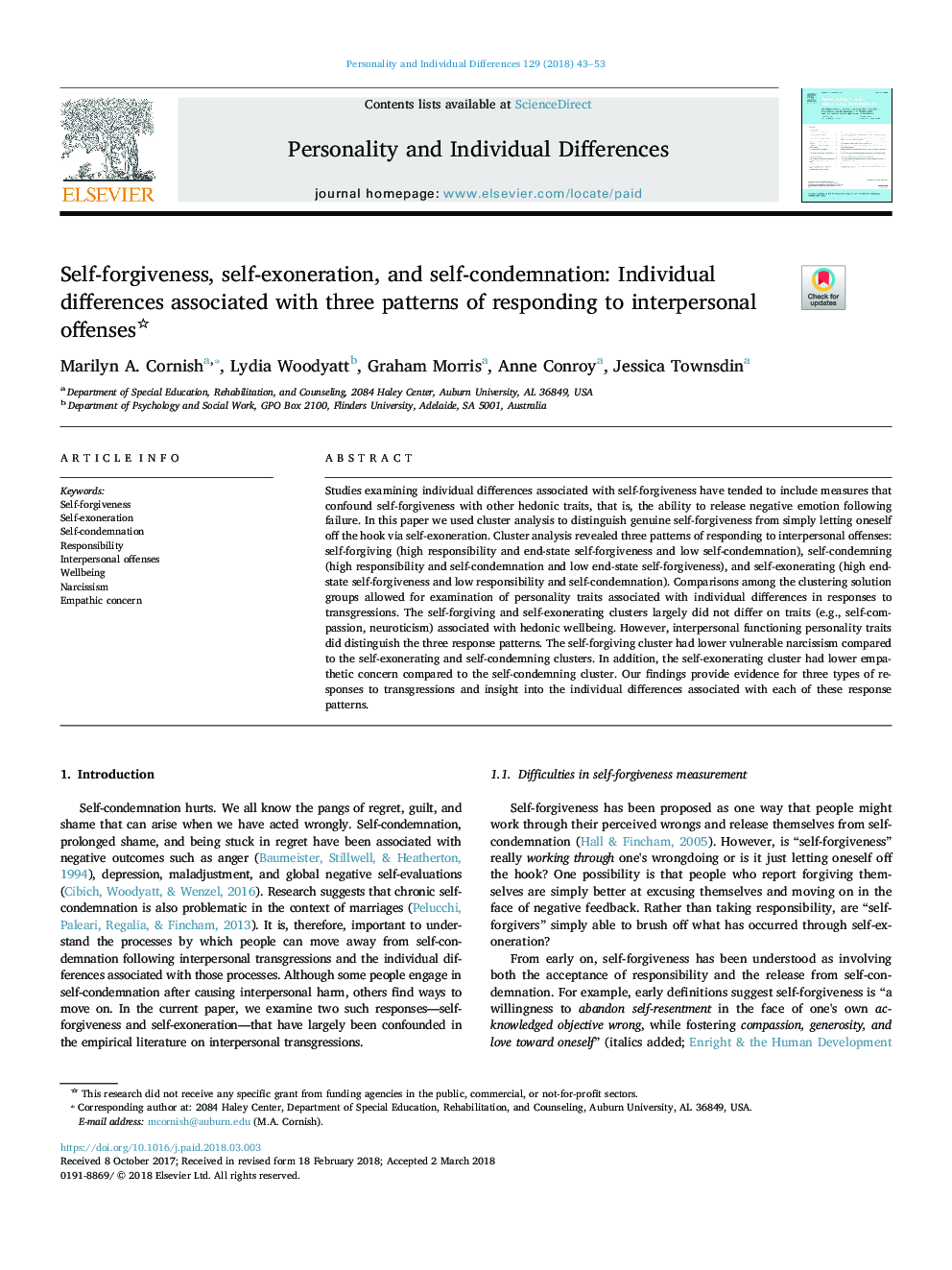| Article ID | Journal | Published Year | Pages | File Type |
|---|---|---|---|---|
| 7248707 | Personality and Individual Differences | 2018 | 11 Pages |
Abstract
Studies examining individual differences associated with self-forgiveness have tended to include measures that confound self-forgiveness with other hedonic traits, that is, the ability to release negative emotion following failure. In this paper we used cluster analysis to distinguish genuine self-forgiveness from simply letting oneself off the hook via self-exoneration. Cluster analysis revealed three patterns of responding to interpersonal offenses: self-forgiving (high responsibility and end-state self-forgiveness and low self-condemnation), self-condemning (high responsibility and self-condemnation and low end-state self-forgiveness), and self-exonerating (high end-state self-forgiveness and low responsibility and self-condemnation). Comparisons among the clustering solution groups allowed for examination of personality traits associated with individual differences in responses to transgressions. The self-forgiving and self-exonerating clusters largely did not differ on traits (e.g., self-compassion, neuroticism) associated with hedonic wellbeing. However, interpersonal functioning personality traits did distinguish the three response patterns. The self-forgiving cluster had lower vulnerable narcissism compared to the self-exonerating and self-condemning clusters. In addition, the self-exonerating cluster had lower empathetic concern compared to the self-condemning cluster. Our findings provide evidence for three types of responses to transgressions and insight into the individual differences associated with each of these response patterns.
Related Topics
Life Sciences
Neuroscience
Behavioral Neuroscience
Authors
Marilyn A. Cornish, Lydia Woodyatt, Graham Morris, Anne Conroy, Jessica Townsdin,
